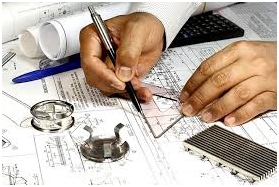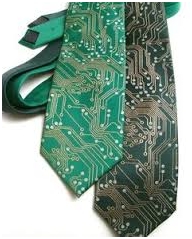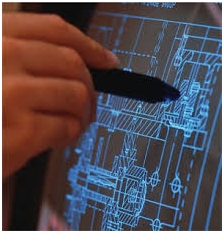New testimony today from a senior electrical design engineer! We’re glad he decided to share his experience with us. Are you ready to follow him for 1 day?
You still can send us your testimonies by mail!
Introduction
“As a Senior Electrical Design Engineer, I am often involved in the development life cycle of electrical systems design and implementation, which include brainstorming, designing, manufacturing, testing and maintaining phases.
Irrespective of the field, whether it is an automobile company or a hospital, an educational institution or a power station, I always try to keep my designs updated with the latest developments in the field of electrical design and technology.
If upgrading an existing system, I try to enhance it with energy efficient components and eco-friendly alternatives, such as solar energy, wherever possible.
My Educational Background
I have completed my BS in Electrical Engineering from Iowa State University. I later went on to complete my Masters in the same discipline from the Stanford University.
Experience:
For the past 12 years, I have been working on several projects in both private and public sectors in the capacity of Senior Electrical Design Engineer.
The company I am presently working with, provides electrical system design and implementation solutions to medical, IT and communication sectors.
Most of my projects are related to medical sector, and often deal with new medical establishments.
My Typical Day
It varies depending on the number of projects at hand, where they are located and their deadlines. But on a normal day, my schedule is as follows:
- 8.00 AM: Though my normal working hours are from 9 AM to 5 PM, I reach office by 8 AM. I do not like rushing at the last moment. The first thing I do as soon as I reach my office is, check my emails, and look for any new updates pertaining to my projects.
- 8.45 AM: Grab a cup of coffee and go through my to-do list for the day. (I normally prepare my weekly schedule every Saturday for the week ahead. This eases my pressure a lot.)
- 9.30 AM: I hold a review meeting with my subordinates as well as other staff members working on my project. This serves as a platform to validate recent updates, check the progress of different departments involved in the project, and provide them with the necessary clarifications and directions.
- 10.30 AM: Depending on the progress, I assign relevant tasks and timeframes, to each department, under which they have to submit their first drafts. Presently, we are working on electrical circuit application for a Primary Health Care Center (PHC).
- 11.00 AM: I try my best to visit the site(s) on a daily basis and supervise the work going on (if the project is located locally), and if required, take necessary actions to speed up the things. Visiting the site regularly helps me to think out of the box and come up with innovative ideas that can be of a great help to the project.
For this project, I have proposed to set up solar panels on the terrace of the central building, which houses administration department and emergency operation theatres to serve as an emergency power back-up, just in case.
- 1.00 PM – 2.00 PM: A much needed lunch break. This helps me to rejuvenate my energy levels and start afresh.
- 2.00 PM – 5 PM: Generally, this time is pre-occupied with client meetings, presentations, and discussions with my superiors, meeting team leaders from other departments, sharing each other’s views on how things are developing and what needs to be done in order to meet the client’s requirements, etc. Of course, I do take a tea-break at 3.30 PM.
- After 5 PM (Occasionally): In case of urgency, I conduct meetings with the ground level staff, draftsmen, designers, architects and other staff (as needed) over the tea, to let them know of the same and make them understand what needs to be done to resolve the issue within the client’s budget and within the given deadlines.
How did I get into this job?
Depending on the number of vacancies most companies issue job postings with pre-determined qualifications (which may vary) that are required to perform each job effectively.
My position as a Senior Electrical Design Engineer demanded a minimum of 5 years experience as a Junior Electrical Design Engineer (Civil Works), PE License, passing a written exam and an interview.
Career Details
As an electrical design engineer, I should say, your career prospects are pretty bright. But, before you see yourself as a future electrical design engineer, you should try and get familiar with these career details:
- Degree Level: You should hold a Bachelor’s Degree or, at least an Associate’s Degree in EE.
- Degree Field: Electrical Engineering or Architectural Engineering.
- Work Experience: After completion of your BS or MS, you must gain at least four years of experience to seek license or promotions.
- License: In U.S, each state has its own requirements to issue Professional Engineer’s License (PE). But in most cases, you need to have at least four years of experience at junior level and then pass fundamentals of engineering exam (FE) before you get certified as a PE.
- General Skills Required: Should be excellent in math and great communication skills are always a bonus.
- Computer Skills Required: Should be familiar with Autodesk Revit, Bentley software and of course, Autocad.
- Technical Skills Required: Instrumentation design, hazardous location design, good understanding and fair practice of codes and regulations as per NEC and NFPA, conduit design, sizing and implementation, etc.
- Work Nature: It can get tough at times, especially, when you have to travel a lot. So, be prepared for extensive travelling. If you have a great attention to detail, and are capable of locating errors in the design phase itself, or capable of producing error free deigns, you will definitely be able to excel as an electrical design engineer.
Some Useful Tips
- I would suggest you to immediately join in an entry level position, as soon as your formal education is completed. The sooner you join, the better you will be able to apply the things that you have learned theoretically in the University. But do remember, a lot differs from the theory, when it comes to applying the same, on filed.
- Try as best as you can to find the best mentor possible amongst the senior personnel. They should possess superior technical skills and must be willing to teach, or else, you will have to convince them for your own good.
- Don’t be pigeon holed. Try to learn as much as you can about all the branches of EE when on the field. This will make you multi-skilled and can come in handy when required. Your job security will also enhance if you have in-depth knowledge and skills pertaining to various departments in EE.
- If you have located a problem in the design, I suggest that you take it to your boss along with its solution. What I mean is, don’t go to your boss with problems, but approach him/her with solutions. I personally like juniors who do that, and often appraise them well.
Conclusion
I hope that the above mentioned career details, tips and advices (along with my typical daily routine) have helped you, the future electrical design engineers, to know the nature of the job in the best way possible.
If you have any doubts in regards to choosing your career as an ‘electrical designer engineer, do not hesitate to leave a comment below. Of course, you can also leave a comment if you liked the information as well :)




im engr.jhun manuel..can i have a copy layout for building mall wiring installation thank u…
Thank you for the tips. Very useful. As per mathematics what are some mathematical knowledge that a design engineer should be very good at? and isn’t it different also depending on what type of industry you are involved? I am currently involved in the solar industry which is different from the automation industry. What really make the different between the various types of design engineers?
Thanks in advance.
Oh my God…!!!! It’s too inspiring to know about the day of a senior designer…when I joined first year in EEE dept I have an idea of becoming a circuit designer later I have switched over my carrier towards lecturing…hats off #senior designer
Excellent post. I want to thank you for this informative read; I really appreciate sharing this great post. Keep up your work. You so…..An amazing article. It’s nice to read a quality blog post. I think you made some good points in this post /body